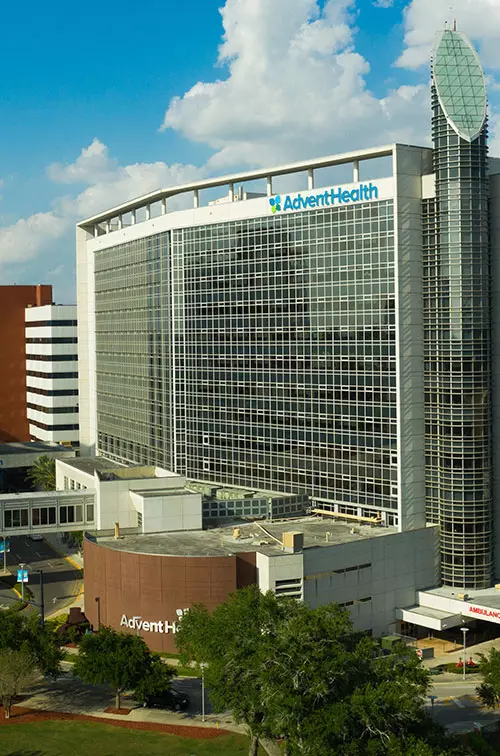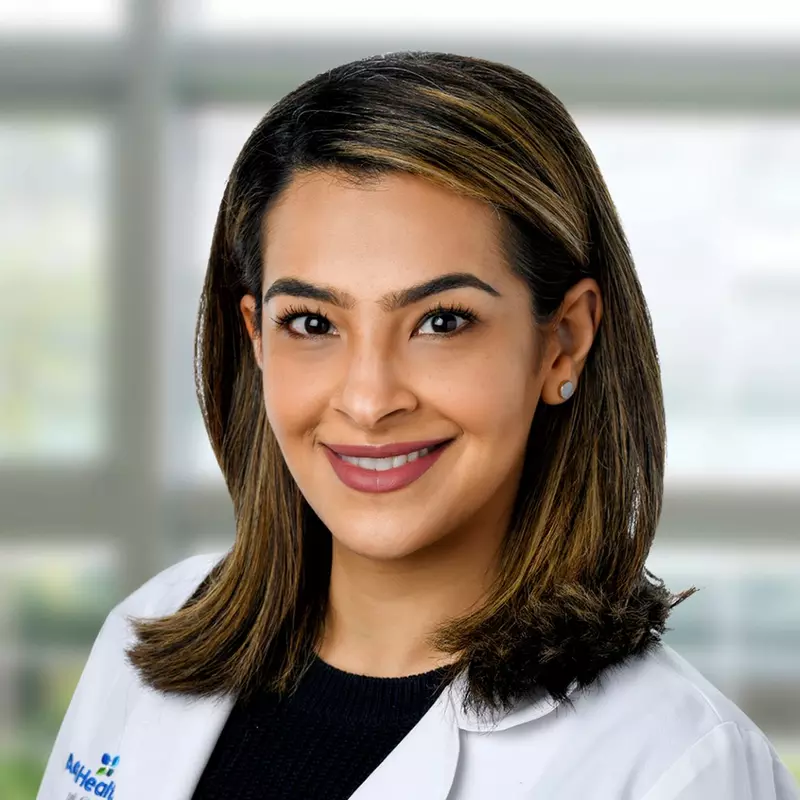
Welcome from the Program Director
Thank you for your interest in the Gastroenterology & Hepatology Fellowship at AdventHealth Orlando! This is a three-year ACGME-accredited fellowship that provides trainees with comprehensive training, education, and mentorship to excel as successful, independent, and respected gastroenterologists in any practice setting. Our curriculum is comprised of high-value didactic and practical components that facilitate the development of clinical expertise in the diagnosis, treatment, and prevention of gastrointestinal, pancreato-biliary, and liver disease through patient care, research, and education. This rigorous training will be delivered in an environment in which the well-being and professional development of our fellows is prioritized. We welcome the highest quality of applicants and invite you to consider the Gastroenterology & Hepatology Fellowship at AdventHealth Orlando!
Mariam Naveed, MD
Program Director
Program Leadership

Mariam Naveed, MD
Program Director
AdventHealth Orlando & AdventHealth Altamonte Springs
Gastroenterology

Mohammad Maysara Asfari, MD
Associate Program Director
AdventHealth Orlando
Gastroenterology, Hepatology
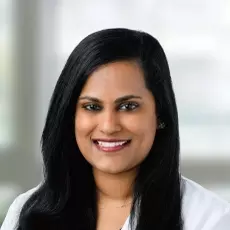
Meghana Vellanki, MD
Associate Program Director
AdventHealth Orlando
Gastroenterology

Irteza Inayat, MD
Core Faculty
GI Medical Director, AdventHealth Central Florida Division
Gastroenterology

Markus Agito, MD
Core Faculty
AdventHealth Orlando & AdventHealth East
Gastroenterology

Ilan Aharoni, MD
Core Faculty
AdventHealth Orlando
Gastroenterology

Mustafa Arain, MD
Core Faculty
Center for Interventional Endoscopy, AdventHealth Orlando
Gastroenterology

Vishwas Vanar, MD
Core Faculty
AdventHealth Orlando & AdventHealth Apopka
Gastroenterology
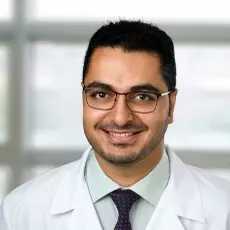
Abu Hurairah, MD
Core Faculty
AdventHealth Orlando & AdventHealth Apopka
Gastroenterology

Ayman Koteish, MD
Core Faculty
Medical Director Liver Transplant, AdventHealth Orlando
Gastroenterology, Transplant Hepatology
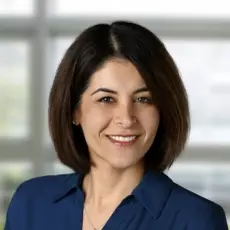
Torfay Roman, MD
Core Faculty
Medical Director Fatty Liver Program, AdventHealth Orlando
Gastroenterology, Transplant Hepatology

Shady Guirguis, MD
Core Faculty
Liver Transplant/Hepatology, AdventHealth Orlando
Transplant Hepatology

Andrew Elden, MD
Core Faculty
AdventHealth Orlando
Gastroenterology
Teaching Faculty
The faculty have trained in numerous geographic locations and have come from prestigious training programs - they are eager to teach you!
- General GI & Hepatology
-
- Mariam Naveed, MD
- Irteza Inayat, MD
- Ilan Aharoni, MD
- Abu Hurairah, MD
- Vishwas Vanar, MD
- Markus Agito, MD
- Maryam Kashi, DO
- Andrew Elden, MD
- Motility Disorders
-
- Irteza Inayat, MD (Medical Director, Center for Esophageal and Swallowing Disorders)
- Markus Agito, MD
- Transplant Hepatology
-
- Ayman Koteish, MD (Medical Director)
- Torfay Roman, MD
- Shady Guirgas, MD
- Fatty Liver
-
- Torfay Roman, MD (Medical Director)
- Abu Hurairah, MD
- Center for Interventional Endoscopy
-
Center for Interventional Endoscopy
- Muhammad Hasan, MD (Medical Director, Center for Interventional Endoscopy)
- Kambiz Khadkhodayan, MD (Advanced Endoscopy Fellowship Director, Endo-bariatrics)
- Mustafa Arain, MD (Medical Director, Pancreas Clinic)
- Dennis Yang, MD (Medical Director, Third Space Endoscopy)
- Natalie Cosgrove, MD (Endo Hepatology)
- Inflammatory Bowel Disease
-
- Ilan Aharoni, MD
Core Rotations
Clinical rotations are specifically structured to ensure trainees receive robust clinical experience. The 36-month fellowship is structured such that approximately 30 months are devoted to clinical experience and at least six months are allocated for research and scholarly activities.
Clinical fellows rotate primarily at the AdventHealth Orlando campus with ambulatory rotations at AdventHealth Apopka, AdventHealth East and AdventHealth Altamonte Springs campuses.
The first year of fellowship will offer intensive clinical experience in both inpatient and outpatient settings with emphasis on the diagnosis and management of a broad spectrum of gastrointestinal and liver diseases. During a four-week elective period, first-year fellows are encouraged to initiate research projects and explore possible areas of sub-specialization.
The second and third-year curricula further build upon the skills gained in first year training and incorporate experiences in motility, and pancreato-biliary disease, while also facilitating more consultative and endoscopic experience.
Additionally, fellows will have the opportunity to further explore numerous clinical gastroenterology & hepatology subspecialties during elective rotations which will permit specific tailoring of their clinical training consistent with personal goals, or alternatively, will permit time to complete a research project.
- Rotation Schedules
-
Program leadership will continuously review and optimize the schedule to maximize clinical experiences. The schedule is set up of 13 blocks per year consisting of 4 weeks each per rotation.
Core Rotations
PGY - 4
PGY - 5
PGY - 6
Inpatient GI Consults
5 months
4 months
3 months
Hepatology Consults
3 months
2 months
1 months
Ambulatory/Motility
2 months
2 months
1 months
Apopka
1 months
1 month
Fellow dependent
Endoscopy
--
1 month
2 months
Research
2 months
1 month
Fellow dependent
Elective
--
2 months
4 months
Pancreatico-Biliary (CIE)
--
1 month
1 month
- Rotations Details
-
AdventHealth Orlando Inpatient Consult Service
Traditional consult experience at a large tertiary care academic medical center. This experience provides exposure to an unparalleled variety of disease processes and pathology. Fellows spend significant time on the inpatient consult services, where they learn how to identify and manage a wide array of GI and liver diseases including gastrointestinal bleeds, inflammatory bowel disease, diarrhea, refractory nausea and vomiting and abnormal liver enzymes. Teaching and management rounds are combined and patient-based, in which current cases are presented for discussion with interpretation of clinical data, differential diagnosis, pathophysiology, indication for endoscopy and imaging with emphasis on evidence driven management of the patient. All inpatient endoscopic procedures are performed by the GI faculty and GI fellows on the consult service, allowing for fellows to see a patient from presentation to procedure and ultimately to resolution of the patient’s complaint. Fellows serve as team leaders - mentoring and teaching other trainees including residents, interns, and medical students on the team.
Ambulatory Rotation
During the Ambulatory Rotation, fellows spend half-days rotating through our numerous sub-specialty focused clinics working alongside faculty in inflammatory bowel disease, general gastroenterology, hepatology, complex functional GI and motility disorders, pelvic floor disorders, and pancreaticobiliary disease. Second and third year fellows during their ambulatory rotation will have significant exposure to all forms of motility evaluation. They will have the opportunity to see patients in the office with our motility specialists, perform motility testing, and gain experience interpreting various motility tests. Fellows will have dedicated time for interpretation and analysis of the various motility tests such high-resolution esophageal manometry, capsule endoscopy, high resolution anorectal manometry, pH- Bravo and pH-Impedance testing, EndoFLIP testing, SmartPill interpretation, and breath test interpretation. Fellows will also rotate through pelvic floor clinic with colon and rectal surgery.
Hepatology Consult Rotation
During this rotation, fellows develop expertise in the diagnosis and management of hospitalized patients with liver diseases such as the complications of acute and chronic liver disease, variceal bleeding, hepatic encephalopathy, spontaneous bacterial peritonitis, post-liver transplant complications, abnormal liver enzymes/function tests, and various other conditions.
Fellows will accumulate significant experience in understanding the role of liver biopsy and radiographic investigations (including invasive radiology, i.e., trans-jugular intrahepatic portosystemic shunt [TIPS]. Fellows on this rotation also participate in liver conferences including liver tumor board and transplant selection conference.
Endoscopy Rotation
Starting in the first year, fellows under direct faculty supervision learn the skills needed to perform diagnostic, screening, and surveillance upper endoscopy and colonoscopy, as well as therapeutic aspects of the endoscopy, such as mucosal biopsy, polypectomy, hemostasis, stricture dilation, and gastrostomy tube placement.
Pancreato-biliary rotation
Second year fellows will rotate through Center for Interventional Endoscopy (CIE) for at least two months of the year. On this rotation, fellows work closely with advanced endoscopy faculty in both the outpatient and inpatient setting. This rotation provides a wide range of exposure to interventional endoscopy techniques including complex EMR, ERCP, EUS, third space endoscopy (i.e., POEM) and endoluminal stenting. The focus of this rotation is on cognitive training for management of advanced pancreaticobiliary diseases and lays the foundation for fellows interested in careers as advanced endoscopists.
Apopka Rotation
This rotation is a hybrid rotation with exposure to outpatient endoscopy cases, outpatient clinic and inpatient consults at AdventHealth Apopka campus. Typically, fellows perform endoscopies in the morning followed by faculty-precepted clinic in the afternoon. The inpatient consult team is supported by an advanced practice registered nurse (APRN) who sees majority of the inpatient consults, though the fellow maybe asked to see inpatient consults at the discretion of the attending faculty. During this rotation, fellows hone consultative and endoscopy skills needed for community gastroenterology practice. There is also the opportunity to do inpatient endoscopy cases when needed in the hospital.
Continuity Clinic
Each GI fellow participates in a half-day session of continuity clinic each week. Fellows see between five and eight patients during each clinic session. Clinic is staffed by GI core faculty.
Program Overview
The curriculum is structured around the six ACGME Core Competencies: Patient Care, Medical Knowledge, Practice Based Learning, Interpersonal Communication Skills, Professionalism, and System Based Practice. The fellowship curriculum also addresses and fulfills recommendations for best practices in gastroenterology training from the Gastroenterology Core Curriculum, a directive put forth by the American College of Gastroenterology (ACG), American Association for the Study of Liver Diseases (AASLD), American Gastroenterological Association (AGA) and the American Society for Gastrointestinal Endoscopy (ASGE).
The fellows will have a comprehensive education curriculum, covering the breadth and depth of all aspects of gastroenterology & hepatology through clinical exposure, procedural experience, quality improvement projects, opportunities for clinical and translational research, routine didactic lectures, grand rounds, and multi-disciplinary conferences.
Throughout their training, fellows will work closely with and receive structured mentoring from our diverse faculty that provide experience and expertise in general gastroenterology and hepatology and its subspecialty disciplines. Graduating fellows will meet the requirements to obtain sub-specialty certification in Gastroenterology as outlined by the American Board of Internal Medicine.
Regular conferences will include didactic review of gastroenterology & hepatology curriculum, M&M, Pathology and Radiology conference and journal club. Faculty presenting and precepting include experts in the field of inflammatory bowel disease, hepatology, motility, and advanced endoscopy.
Outpatient clinics, inpatient consultation services, state-of-the-art endoscopy units and established robust programs in motility, fatty liver, IBD and liver transplantation provide the framework for clinical training in gastroenterology and hepatology at AdventHealth. Fellows attend a weekly continuity clinic with a faculty preceptor. Ample elective time affords trainees the ability to tailor their learning based on career goals and allows for more time for specialized training in hepatology, advanced endoscopy, transplantation, inflammatory bowel disease and motility. Opportunity exists to interact with colleagues in colon and rectal surgery, pathology, general surgery, and radiology. Fellows also contribute to the informal education of students and residents during outpatient clinics and on clinical rounds. Senior fellows are also expected to participate in the formal teaching of students and residents by delivering lectures and serving as preceptors.
Endoscopy training starts during orientation with assigned modules and time for practice on an endoscopic medical simulator. Procedural skills in diagnostic and therapeutic endoscopic procedures are gained and honed as fellows rotate and advance through high volume inpatient and outpatient endoscopy units throughout their fellowship. Fellows also have access to Olympus’s ScopeGuide and can receive real-time feedback on shape and position of the endoscope, which can help fellows improve procedural efficiency and most importantly patient comfort during procedures. Senior fellows may participate in advanced endoscopic procedures at the discretion of the advanced endoscopy faculty. All trainees will receive training in general endoscopic procedures that excels the minimum requirements established by the ASGE.
Structured didactic curriculum exists to supplement clinical experiences in a variety of learning formats including lectures, hands-on-workshops (endoscopy boot camp, simulation training), fellow case presentations and teaching rounds. Fellows have protected time each Friday afternoon for didactics. Several conferences occur throughout the week and month including an “Emergency Lecture Series” that focuses on the basics in gastroenterology for the first year GI fellows. As the year progresses, the focus shifts to the latest advances in gastroenterology and hepatology. Fellows frequently participate in the conferences presenting morbidity, mortality, and management talks, and journal article reviews.
Through our partnership with the Center for Interventional Endoscopy (CIE), our faculty and fellows have the opportunity to attend all didactics and conferences organized by CIE. Please see their website for details regarding upcoming events.

Clinical research is an integral component of the fellowship. Ample opportunities exist for fellows to participate in clinical research, translational research, and other scholarly activities. AdventHealth Orlando campus is home to AdventHealth Translational Research Institute (TRI), a custom-designed 54,000 sq. ft. translational research facility located on the AdventHealth Orlando campus with 250 investigators and more than 500 clinical trials in progress at any given time and over a dozen research areas as well as Nicholson Center.
Our Current Fellows
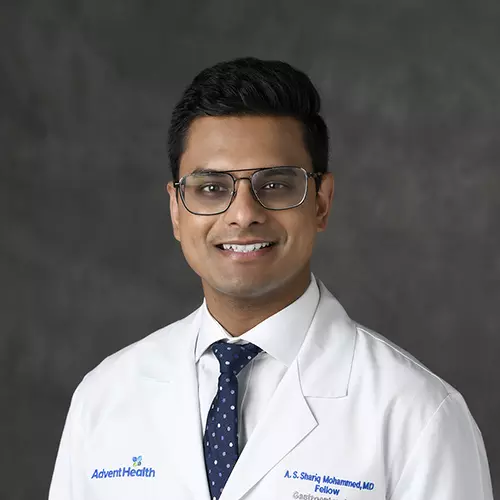
Abdul Sattar Shariq Mohammed, MD
PGY-6
Residency: Internal Medicine, John H. Stroger, Jr. Hospital of Cook County, Chicago, IL
Medical School: N.R.I. Medical College, Guntur, India
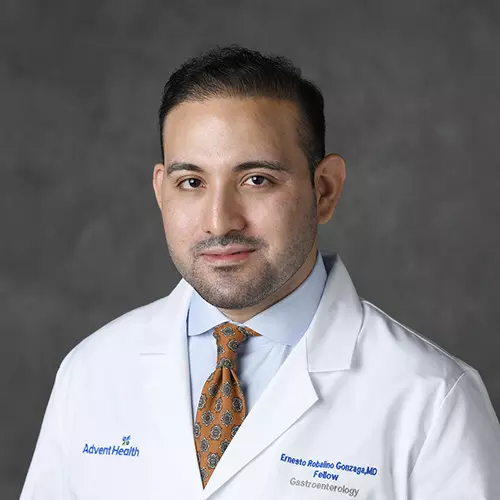
Ernesto Robalino Gonzaga, MD
PGY-6
Residency/Chief Resident: Internal Medicine, UCF, Orlando, Fl
Fellowship: GI Motility & Neuro-Gastroenterology, Johns Hopkins Hospital, Baltimore, MD
Medical School: Universidad de Especialidades Espiritu Santo (UEES) Facultad de Ciencias Médicas, Guayaquil, Ecuador
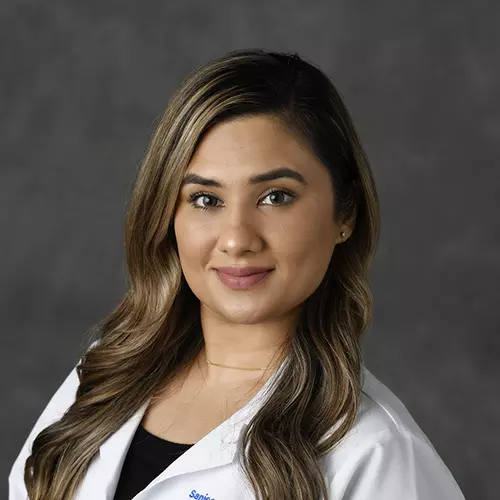
Sanjeevani Tomar, MD
PGY-5
Residency: Internal Medicine, University at Buffalo, Buffalo, NY
Medical School: People’s College of Medical Sciences and Research Center, Bhopal, Madhya Pradesh, India
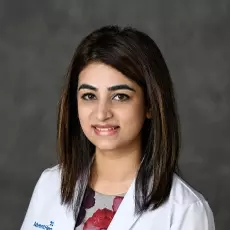
Aimen Farooq, MD
PGY-5
Residency: Internal Medicine, AdventHealth Orlando
Medical School: Allama Iqbal Medical College, Lahore, Pakistan
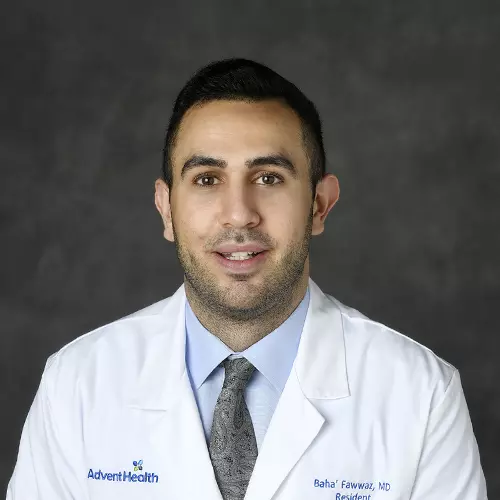
Baha Bani Fawwaz, MD
PGY-5
Residency: Internal Medicine, AdventHealth Orlando
Medical School: Jordan University of Science and Technology, Irbid, Jordan

Mohamad Almujarkesh, MD
PGY-4
Residency: Internal Medicine, Detroit Medical Center/Wayne State University SOM, Detroit, MI
Medical School: University of Damascus Faculty of Medicine, Damascus, Syria

Gurdeep Singh, DO
PGY-4
Residency/Chief Resident: Internal Medicine, AdventHealth Orlando
Medical School: Cambell University School of Osteopathic Medicine, Buies Creek, NC

Sobaan Taj, MD
PGY-4
Residency: Internal Medicine, Jersey Shore University Medical Center, Hackensack Meridian Health, Neptune, NJ
Medical School: Ayub Medical College, Abbottabad, Pakistan
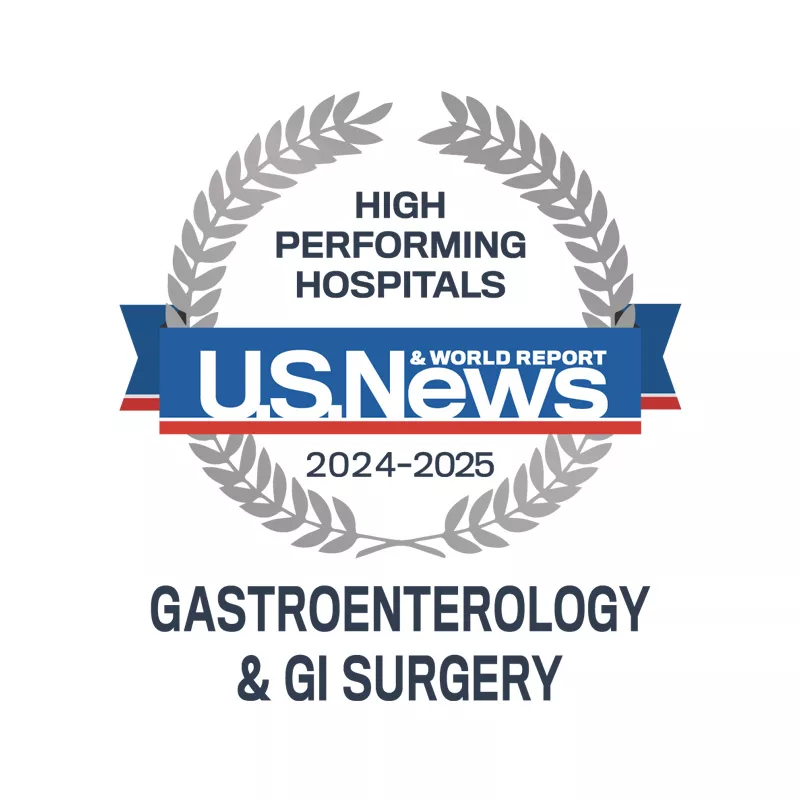
National Leader in Digestive Care
AdventHealth Orlando is recognized by U.S. News & World Report as a nationally rated leader in gastroenterology and GI surgery.
Program Information
- Benefits
-
For more information on the many benefits offered across all programs, click here.
- Diversity and Inclusion
-
- AdventHealth as an institution and Orlando as a city have a strong commitment to diversity and inclusion and has been at the forefront of promoting diversity and fighting for social justice in many respects. Our Gastroenterology Fellowship program has strong commitment to diversity at all levels. Diversity and inclusion to us means not only considering race/ethnicity/gender and underrepresented groups in medicine but also an individual's background and the distance traveled, or hardships traversed when applying to our program. We understand that a workforce of physicians who better understand the culture and customs of patients from all walks of life has a positive impact on patient care, education, and research. The AdventHealth System has a non-discriminatory and diverse approach to recruiting staff and the same criteria is applied to the fellowship program.

Application Process Join Our Team
We proudly received our ACGME accreditation in January 2022. For consideration to our program in appointment year 2025, please note that we participate in the NRMP Match and applicants will need to apply through the ERAS website.

Contact Information Program Coordinator
Karen Gonzalez
Fellowship Coordinator

